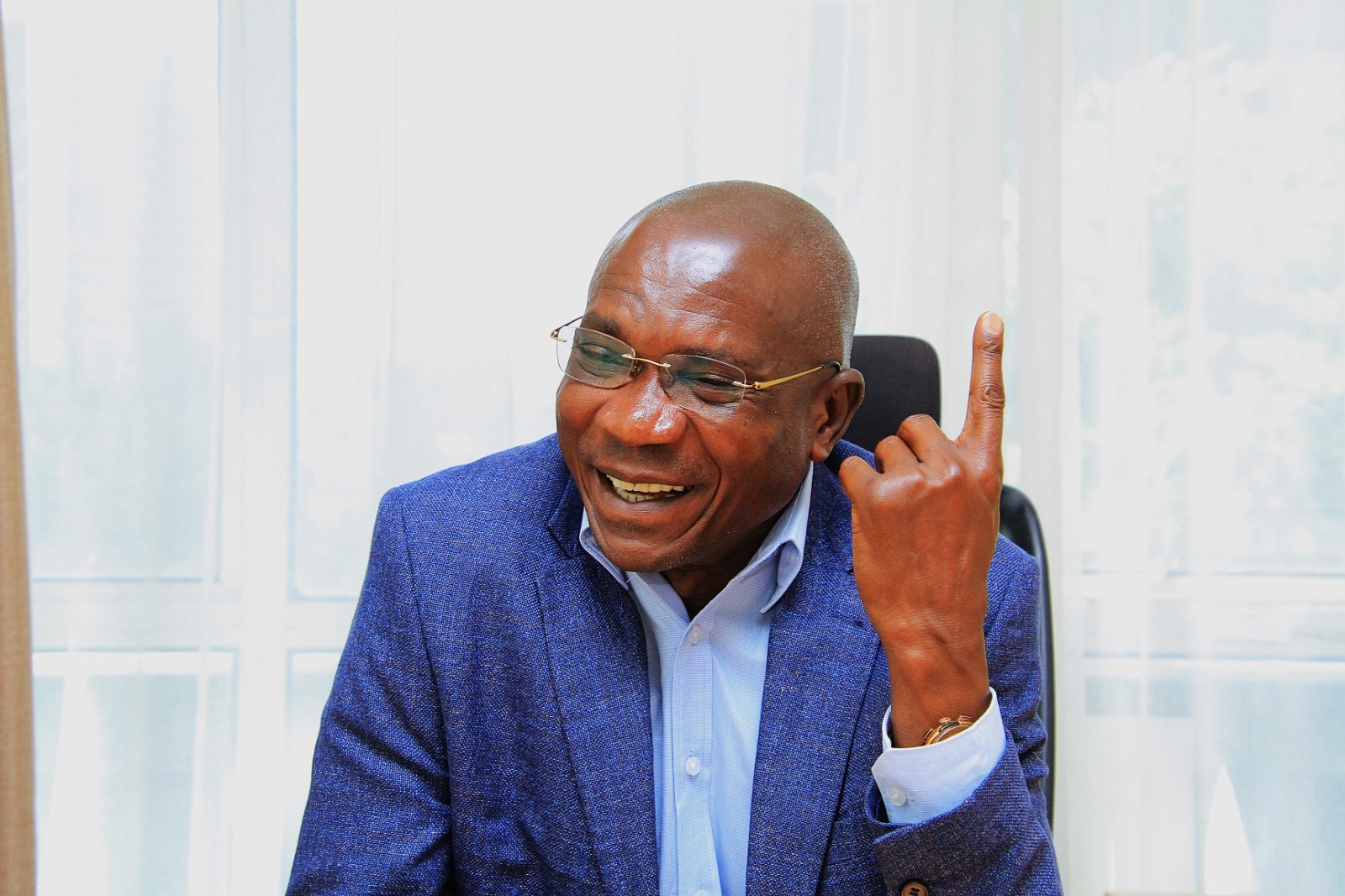The emergence of the Competency-Based Curriculum has been a monumental reform in the Kenyan education sector. It is a new paradigm in education that seeks to phase out the previous 8-4-4 system in the country.
The new curriculum, which took full effect in January, has introduced a new perspective on how learners acquire knowledge and skills, placing a great focus on core competencies.
Among the schools that have excelled in the adoption and execution of CBC in Kenya is Makini School. Makini has been on the frontline in implementing and keeping up with the new curriculum, which was researched and developed by the Kenya Institute of Curriculum Development.
Maurice Akech, the deputy principal for academics at Makini Cambridge School Nairobi, shared insights into how the new curriculum has revolutionised the institution.
Akech is one of the longest-serving teachers in the institution, having served for more than 17 years. To him, teaching is not just a passion, it is a calling that he fully embraces.
Akech has been teaching mathematics for decades in the institution, and has played an instrumental role in making mathematics one of the best-performing subjects in the institution.
He has co-authored 'Active Mathematics, Grade 1 to 8', which is used by learners countrywide and is approved by the Kenya Institute of Curriculum Development.
Under his watch, the mathematics department has produced student teams that have won multiple awards at the Mathematics Olympiad Competition.
As a teacher who believes in teamwork, he says such achievements have inspired learners from within and without to love and excel in mathematics.
PARADIGM SHIFT
Having taught in both the 844 system and the new Competency-Based Curriculum, Akech said the CBC is by far the best curriculum.
“I applaud the government for adopting the competency-based curriculum, which has proven to be a game changer in our country’s education system,” he said.
“This shows how the Kenyan government is committed to enhancing a top-tier education system that is globally competitive and relevant to the needs of the present-day job market.”
As a requirement from the Unesco, a curriculum should be reviewed after 20 years, and minimal changes should be introduced after every five years.
Akech said the implementation has been a great success at Makini. The school's management has played a pivotal role in ensuring it is fully adopted.
“We have seen enrolment grow in leaps and bounds after adopting the new model. Previously, the enrolment was about 3,000, but with CBC, the numbers surged to 4,500,” he said.
“Allow me to also applaud our management because the teachers in this institution have been trained at a personal level and an organisational level.
“We have also called the Kenya Institute of Curriculum Development officers to train us on how to handle certain subjects that have been incorporated in the new curriculum.”
EXPECTATIONS MET
In July last year, the Kenya Private Schools Association expressed confidence that private schools in the country are well equipped to deliver on the CBC, saying the sector has invested immensely in the training of teachers.
Speaking at a stakeholders engagement in Nairobi in June last year, Kepsa chairman Nelson Githinji said 80 per cent of private schools in Kenya have the requisite facilities to host Junior Secondary Schools.
Hezron Onyango, Makini Kisumu City head teacher, agrees that the new curriculum is a step in the right direction in Kenya’s education sector.
“As an educator, I have witnessed the significant difference in the love for learning demonstrated by a CBC learner compared to the curriculum we are phasing out,” he states in an article on the Makini School website.
“Schools that have fully embraced the curriculum, such as Makini Schools, have also reported that Competency-Based Curriculum learners are more disciplined owing to the curriculum’s strong focus on values.”
He added that the learners are digitally literate and see the world as a global village.
Akech said there’s no great disparity between public schools and private schools because the content in the CBC books is the same.
There is, therefore, no discrimination or partiality when it comes to the content published for use by teachers and students from different schools.
There is also a healthy balance between summative and formative assessment that comes with the new curriculum.
“Those students who are good at science, technology engineering and mathematics (STEM subjects) are well catered for,” he said.
“Those learners who are good at sports are equally well catered for because we have swimming lessons, basketball, football and other sports that enable our learners to go for competitions where they can showcase their prowess.”
We see the learners do things they would not ordinarily do in the previous curriculum. We see the rich and diverse potential that would have otherwise remained untapped in them
A WORTHY MODEL
As the deputy principal for academics, Akech led the institution in registering the highest improvement in mathematics last year.
A state-of-the art sports complex, which is an upgrade on the existing one, is under construction. He said it will enable learners to practise and perfect their skills in sports.
Those who love agriculture can do their practicals and do the agriculture-based activities in the school’s garden.
Additionally, those students who are good at social sciences have a club that caters for them.
“Despite the advantages and the positive shift the new curriculum has brought to the education system in Kenya, we cannot negate the fact that the 844 system also had its fair share of advantages,” Akech said.
“In fact, some of the top scholars we have in our country are beneficiaries of the 844 system.”
He said the 844 system laid the groundwork and, in a sense, became the launching pad for the CBC.
“And so we have to appreciate the curriculum that has just been phased out as we embrace the new curriculum,” Akech said.
He said the new curriculum, which was received with skepticism by both parents and teachers, has over time brought a change of heart in them due to the positive outcomes.
“We see the learners do things they would not ordinarily do in the previous curriculum. We see the rich and diverse potential that would otherwise have remained untapped in them,” Akech said.
By and large, the curriculum has made the learners creative, imaginative, collaborative and critical thinkers.
ACTIVITIES UNDERTAKEN
Some of the CBC activities that learners engage in are: music and drama, sports, public speaking, entrepreneur activities, nutritional practicals, coding in pre-technical (computer science) and the like.
“STEM education is on an upward trajectory in Makini School. We have laid a solid groundwork for it and learners and parents are embracing it fully. The teachers are also doing their very best to see the learners leverage on the related fields,” Akech said.
Computer science teacher Boniface Nyapala, who teaches Grade 7 and 8 at Makini, said CBC is here to make a difference such that every single learner’s potential is unlocked.
“Pupils learn and are better placed to be problem solvers in the society when our schools embrace and support such mechanisms,” he said.
“Through the exercises and activities I give them, I’ve seen some of them perfect their skills and find their niche or specialty in matters technology.”
He said some of the learners have developed skills in coding, gaming and graphic design.
By and large, the school has played an integral role in ensuring that the CBC’s learner-centred approach is actualied. The school has invested heavily in teachers and learners alike to prove that CBC is a workable and relevant curriculum that should be embraced in the country.
The competencies that come with the CBC afford a more comprehensive and well-rounded education that prepares learners for the complexities of the real world.
Having this consciousness has caused schools such as Makini to be trailblazers and a clear model that other schools can borrow a leaf from.
Parents and teachers must work together to help learners flourish under the new curriculum. A modern education requires modern approaches.













